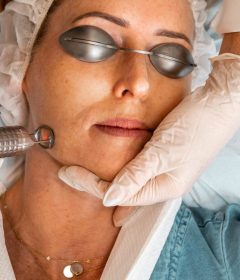Dental Crowns For Restoring Damaged Teeth

Dental crowns are a versatile and effective solution for restoring damaged teeth. They play a important role in preserving tooth function, appearance, and overall oral health. Here’s a detailed overview of how dental crowns work and their benefits for restoring damaged teeth.
Understanding dental crowns:
A dental crown Dubai is a cap that encases a damaged tooth, providing strength, protection, and an improved appearance. Crowns can be made from various materials, including metal, porcelain, ceramic, or a combination of materials. The choice of material depends on factors such as the location of the tooth, the extent of damage, and aesthetic preferences.
Indications for dental crowns:
Dental crowns are used in various situations to restore damaged teeth:
- Severe decay: When a tooth has extensive decay that cannot be effectively treated with a filling alone, a crown can protect the remaining tooth structure.
- Cracked or broken teeth: Crowns provide strength and stability to teeth that are cracked, fractured, or severely worn down.
- Root canal treatment: After a root canal procedure, the tooth may be weakened. A crown helps restore the tooth’s function and protects it from further damage.
- Cosmetic improvement: Crowns can also be used to improve the appearance of teeth that are discolored, misshapen, or uneven.
The crown placement process:
The process of getting a dental crown typically involves two visits to the dentist:
- Initial visit: During the first visit, the dentist prepares the tooth by removing any decay and shaping it to ensure a proper fit for the crown. Impressions of the tooth are taken to create a custom-made crown. If a permanent crown is not immediately available, a temporary crown is placed to protect the tooth while the permanent crown is being fabricated.
- Final visit: At the subsequent visit, the permanent crown is fitted, adjusted, and cemented into place. The dentist will ensure that the crown aligns correctly with the surrounding teeth and that the bite is comfortable.
Benefits of dental crowns:
Dental crowns offer several advantages for restoring damaged teeth:
- Improved strength and durability: Crowns restore the full function of a damaged tooth, allowing it to withstand normal chewing forces and pressures.
- Aesthetic improvement: Crowns, particularly those made from porcelain or ceramic, can closely match the natural color of teeth, providing a smooth and attractive appearance.
- Protection: Crowns shield the underlying tooth from further damage, decay, or fracture, thereby prolonging its lifespan.


